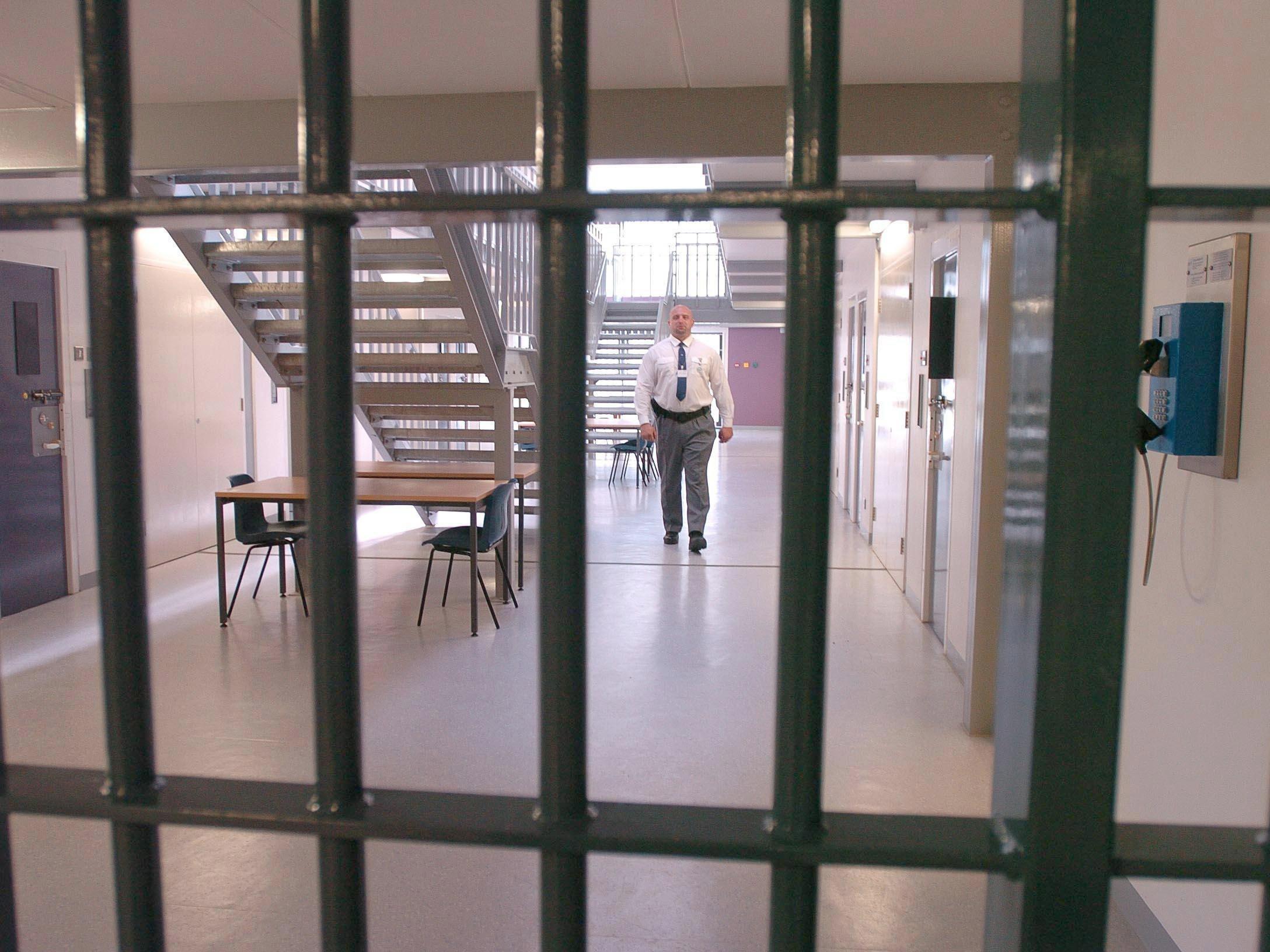Government facing climbdown over 'unlawful' denial of legal aid to prisoners following High Court ruling
'The evidence about prison staffing levels, the current state of prisons, and the workload of the Parole Board suggests that the system is under considerable pressure,' says Lord Justice Beatson

The Government could be forced into a climbdown over its cuts to legal aid for prisoners after the "groundbreaking" judgement that they were unlawful at the Court of Appeal.
Violence and self-harm in prisons have soared to record levels since they were imposed by former Justice Secretary Chris Grayling in December 2013 and and almost 300 prisoners have committed suicide.
Many have also been unable to challenge decisions that could keep them incarcerated for longer than necessary.
But following an appeal by the Howard League for Penal Reform and the Prisoners’ Advice Service, three judges found denying inmates legal aid is “inherently unfair” because of the vulnerability of some prisoners and their inability to represent themselves.
The judgement paves the way for judicial review.
In pictures: The view from inside Wandsworth Prison
Show all 10"The evidence about prison staffing levels, the current state of prisons, and the workload of the Parole Board suggests that the system is under considerable pressure," said Lord Justice Beatson in his judgement, adding: "The system has at present not got the capacity sufficiently to fill the gap in the run of cases (where legal aid is being denied).”
Before his ruling, the court heard that inmates who might be suitable candidates for open prison or re-categorisation are currently unable to access legal aid and may be forced to remain as Category A prisoners for years longer than necessary.
Prisoners were also left without representation for sentencing reviews by the Parole Board and for decisions about access to offender behaviour programmes and courses, disciplinary proceedings and placement in close supervision centres.
The court found the “high threshold" for a finding of systemic unfairness has been satisfied in the case of pre-tariff reviews by the Parole Board, Category A reviews and decisions as to placement in a close supervision centre.
The judgement said the court considered “the ability of the individual to represent himself without legal assistance, having regard to his age or mental capacity” and that it considered “vulnerable prisoners” such as those with learning disabilities and mental illness, in reaching its decision.
The judgement was welcomed in a joint statement by the prisoners’ charities who lodged the appeal.
Frances Crook, Chief Executive of the Howard League for Penal Reform, said: “This decision will make the public safer. It vindicates our concerns that cuts imposed by the former Lord Chancellor, Chris Grayling, in 2013 presented a grave risk that prisoners would become stuck in a broken system.
“This sends a clear message that important decisions about prisoners cannot be made efficiently or fairly in the face of these cuts. We look forward to hearing from the Lord Chancellor with her plans to give effect to the judgement.”
Deborah Russo, Joint Managing Solicitor of the Prisoners’ Advice Service, said: “This is an unprecedented and groundbreaking legal victory in which the vulnerability of the prison population is fully recognised as a key factor in its limited ability to access justice. Common law came to the rescue of a marginalised and often forgotten sector of our society.”
When he introduced the cuts to legal aid, Mr Grayling said the restrictions represented a “good deal” for taxpayers as the coalition Government sought to reduce the legal aid bill by £350 million a year as part of sweeping public spending cuts. His successor, Michael Gove, reversed some of the proposed cuts to legal aid, but not for prisoners.
Mr Grayling said in 2013 he was “appalled” taxpayers’ money was being used for legal cases which he claimed should be dealt with by the prison system’s internal complaints system.
In 2013, prisoners were bringing approximately 11,000 court cases each year but the cut meant only wealthy prisoners could continue to have legal representation where they didn't agree with the decision of authorities such as the Parole Board.
Deborah Russo, Joint Managing Solicitor of the Prisoners’ Advice Service, hailed the ruling as a landmark one.
“This is an unprecedented and groundbreaking legal victory in which the vulnerability of the prison population is fully recognised as a key factor in its limited ability to access justice. Common law came to the rescue of a marginalised and often forgotten sector of our society.”
Rebecca Hilsenrath, Chief Executive of the Equalities and Human Rights Commission, which intervened in the case, said: “It’s a hallmark of a democratic legal system is that it is fair and robust for all users. Without access to legal aid, prisoners with learning difficulties and mental illness would not be able to participate effectively in important decisions about their future, placing them at a significant disadvantage. We welcome today’s judgment that will ensure our legal system continues to provide legal help during these hearings.”
A spokesperson for the Ministry of Justice said: “We note the Court of Appeal’s judgement on changes made to legal aid regulations - introduced in 2013 - and will consider whether to appeal.”
Subscribe to Independent Premium to bookmark this article
Want to bookmark your favourite articles and stories to read or reference later? Start your Independent Premium subscription today.

Join our commenting forum
Join thought-provoking conversations, follow other Independent readers and see their replies